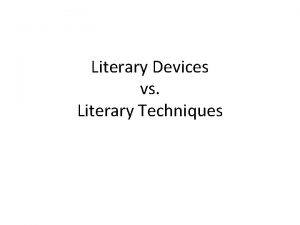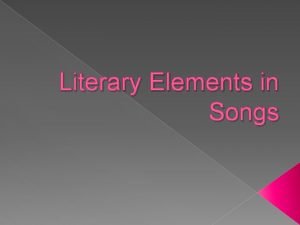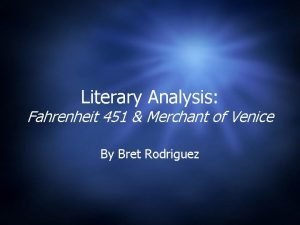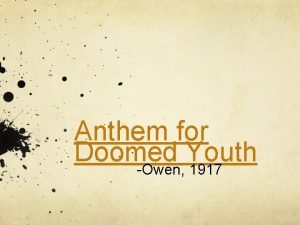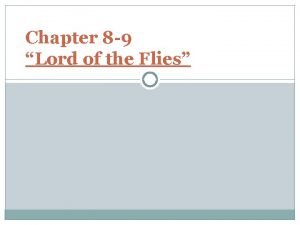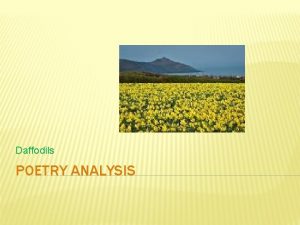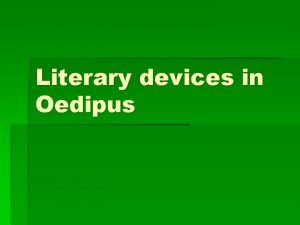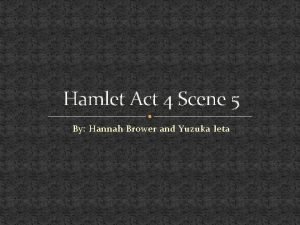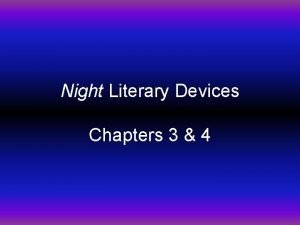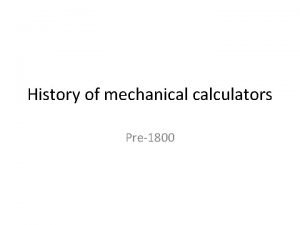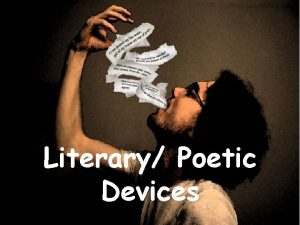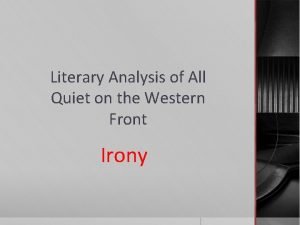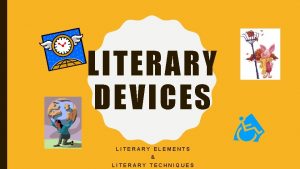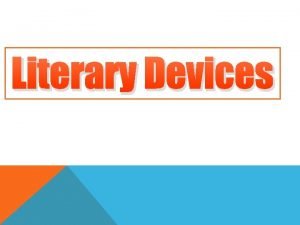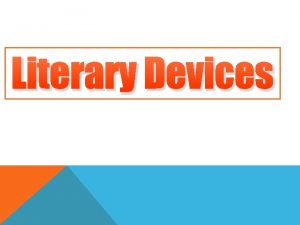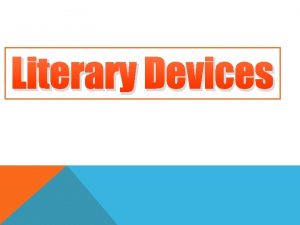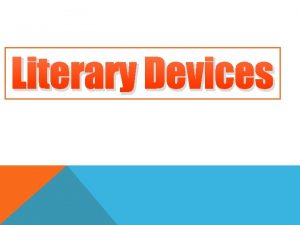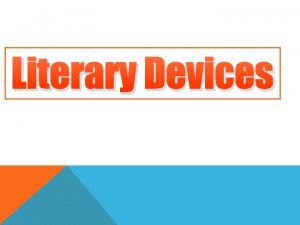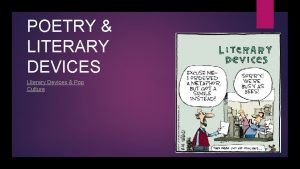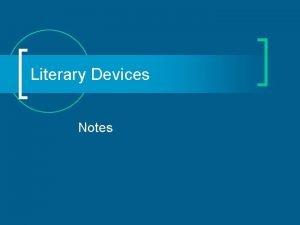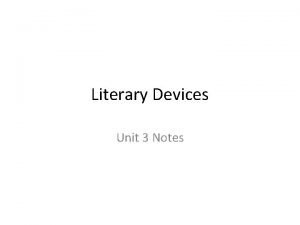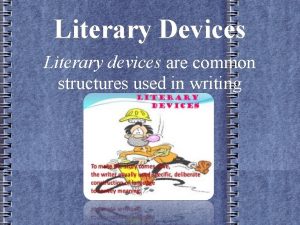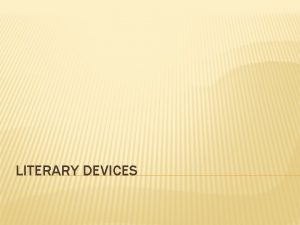Literary Devices What are literary devices Literary devices















- Slides: 15

Literary Devices

What are literary devices?

Literary devices ❖ They are elements used by writers to create a specific effect in any given literary piece ❖ When used effectively, literary devices help readers appreciate, interpret, and analyze a literary work

Imagery: ❖ A sensual apprehension (a sight or smell) or a concept (femininity or mortality) presented in a text ❖ Examples: ➢ He fumed and charged like an angry bull ➢ He fell down like an old tree during a storm

Literary devices ❖ Foreshadowing ➢ A literary device in which the author gives clues about events that will happen later on in the story ❖ Oxymoron ➢ A figure of speech in which is apparently contradictory ideas to the terms that appear in conjunction ➢ Examples: “Less is more”, “Deafening silence”

Literary devices ❖ Metaphor ➢ ➢ ❖ An image that lies to tell a truth by transferring identity from one thing to another. Describe something without using “like”or “as”. Examples: “a blanket of snow” Allusion ➢ A reference to a person, place, historical event, literature, myth, or folklore that relates back to the orignial conversation.

Symbol ❖ An image that means more than it denotes (seems) ❖ Examples: a skull, heart, clock, rose, etc.

Personification Examples of personification: ❖ Attributing human characteristics or qualities to inanimate objects or things that are nonhuman. ● The wind whistled loudly. ● The leaves danced in the wind. ● The alarm clock screams early every morning.

Literary devices ❖ Alliteration: ➢ Repetition of consonant sounds in a sequence of words ➢ Example: “While I nodded, nearly napping, suddenly there came a tapping” -E. A. Poe

Literary devices ❖ Simile: ➢ A comparison of two objects using “like” or “as” ➢ Examples: ➢ as happy as a clam ➢ as tall as a tree ➢ bright like sun

Literary devices ❖ Paradox ➢ a statement leads to a conclusion that seems senseless, logically unacceptable, or self-contradictory ➢ Example: “sound of silence”, “comfortable misery” ❖ Irony ➢ A statement that seems deliberately contradictory or opposite to what one expects ➢ Example: a bird who is afraid of hights

Literary devices ❖ Pun ➢ A joke exploiting the different possible meanings of a word or words that sound alike but have different meanings.

Literary devices ❖ Pathetic fallacy ➢ Used to reflect the actions and emotions of a story/character in nature (usually the weather). ➢ Think of the dark and gloomy weather in E. A. Poe’s “The Raven” and the narrator’s dark and gloomy mood over losing Lenore. ❖ Allegory ➢ A story, poem, or picture that can be interpreted to reveal a hidden meaning, typically a moral or political one ➢ Example: “Pilgrim's Progress is an allegory of the spiritual journey”.

Literary devices ❖ Magic realism ➢ A literary genre in which realistic narrative is combined with surreal elements of dream or fantasy.

EXTRA! You’ve got to have it! ● Monologue: like a soliloquy, is a lengthy speech. However a monologue is addressed to other characters on stage, not to the audience. ● Soliloquy: a lengthy speech in which a character – usually alone on stage – expresses his or her thoughts to the audience. ● Aside: a brief remark by a character revealing his thoughts or feelings to the audience, unheard by the other characters.
 Mikael ferm
Mikael ferm Literary techniques examples
Literary techniques examples Scanner is input or output device
Scanner is input or output device A comparison not using like or as
A comparison not using like or as Fahrenheit 451 literary analysis
Fahrenheit 451 literary analysis Anthem for doomed youth assonance
Anthem for doomed youth assonance Deus ex machina lord of the flies
Deus ex machina lord of the flies Introduction of a tiger in the zoo
Introduction of a tiger in the zoo I wandered lonely as a cloud literary devices
I wandered lonely as a cloud literary devices Foil definition literary device
Foil definition literary device Literary devices in oedipus the king
Literary devices in oedipus the king Hamlet act scene 5
Hamlet act scene 5 Synecdoche figure of speech
Synecdoche figure of speech Various calculating devices
Various calculating devices Comparison literary device
Comparison literary device All quiet on the western front literary devices
All quiet on the western front literary devices

